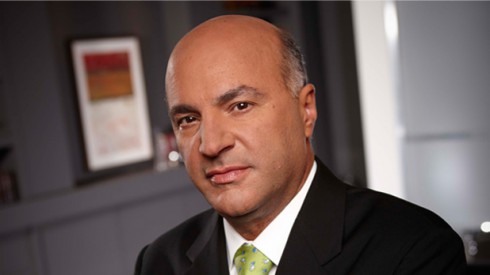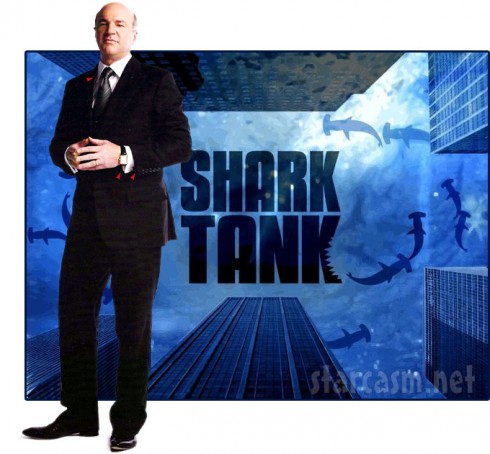How did Shark Tank’s Kevin O’Leary (aka “Mr. Wonderful”) make his fortune?
Kevin O’Leary plays the villain on Shark Tank, and that’s the way he likes it. He likes to be stopped on the street and called names. He likes to say cryptic and sinister things about how he would cut staff to improve efficiency in a company he’s thinking about making a controlling investment in. He wants to be to entrepreneurs what Simon Cowell is to singers. But, Simon Cowell isn’t just rude, he is often also right; so, his caustic criticism can cut through conventional niceties and get down to the hard truths about one’s realistic prospects. Does Kevin O’Leary really have that super power?
The Greater Fool theory of investing states that what matters in an investment is not whether it generates real value but whether it can be sold at a profit to the next fool who is eager to get a piece of the action. Housing crisis, anyone? Mark Cuban became wealthy by letting Yahoo be the greater fool when it bought Broadcast.com from him, and he is apparently not the only Shark to get rich this way. Maybe there’s a pattern, here. It looks like Kevin O’Leary might have found a greater fool, too, and it was Mattel.
As he tells his story, O’Leary’s (or “Mr. Wonderful” as he is often referred to sarcastically) ascent to the financial stratosphere followed a fairly straight, almost vertical, path. He learned his basic investment strategy from his mother: only buy bonds that pay interest and stocks that pay dividends, a strategy he claims that his company still follows. Shortly after college, O’Leary founded SoftKey Software and made it wildly successful. Softkey, then bought The Learning Company, kept its name, and made the new conglomerate wildly successful. Then Mattel purchased The Learning Company and O’Leary made a great big ocean of hard-earned fortune. And, that’s where we find him, immersed in that fortune and sizing up the little fish who think they want to swim with him.

According to a profile of O’Leary in Rob Magazine of the Toronto Globe and Mail, O’Leary’s backstory is a little more complicated than that mythology. According to their version, O’Leary teamed with someone who knew programming to form Softkey Software Products, Inc., a firm that ended up specializing in educational software. Most of what Softkey did was bundle lots of freeware and shareware onto disks and market them as themed compilations. O’Leary was the firm’s salesman and chose venues like grocery and music stores rather than the typical computer retailers. The software was priced low, the company’s strategy being to make up in volume what it was giving away in margin. This marketing strategy was clearly O’Leary’s, and it was brilliant. Remember those disks full of freeware that you used to be able to find near the checkout line in random stores? That was Kevin O’Leary’s idea. So far, so consistent with the O’Leary mythology.
In 1995, Softkey Software Products acquired The Learning Company and adopted its name. As part of the process of acquisition, however, there were reports that Softkey Software Products was overstating its earnings and not following up properly on internal control problems identified by its external auditor, Arthur Andersen. O’Leary leaves this part out of his story, and has denied that it is true. This is a key point, though, because it means the difference between O’Leary’s company being valuable or just looking valuable. Did O’Leary build Softkey into a valuable company, or did he make it look like a valuable company and sell it like crazy?
O’Leary’s company (now called The Learning Company) continued to grow through acquisitions, but it recorded significant losses in 1996 – 1998. This is also not a part of O’Leary’s story. According to him, The Learning Company was stronger after the Softkey merger than before. That’s certainly must have been what he was telling Mattel when they became interested in acquiring TLC.

The Mattel deal went through, and now some list it as one of the worst deals of all time. Mattel purchased The Learning Company for around $4 billion. O’Leary was made president of Mattel’s TLC division, and he made nice paper profits on the swapping of TLC for Mattel stock. How bad was this deal for Mattel? According to Businessweek.com, iIn 1999, Mattel expected its TLC division to show a $50 million profit, but it took a loss instead of $105 million. Mattel’s stock price dropped from $17 to $11.69. Yikes.
Mattel’s stockholders may have taken a big hit, but O’Leary came out of it just fine. He was fired from Mattel after the stock price dropped, but he sold most of his stock in Mattel before the bad news, and he had a healthy severance package as well. All told, he walked away from the disaster about $11 million richer.
One of the sharpest ironies of the Mattel deal is that, according to the Rob Magazine piece, The Learning Company under O’Leary’s leadership was overstaffed.
Mattel hired Bernard Stolar, a video-game executive, to see if he could salvage TLC. “It was an absolute disaster,” he says. “TLC had a lot of overhead and product wasn’t selling. They were way overstaffed. They had 20 offices when they only needed two.”
So much for ruthless efficiency being O’Leary’s secret to success.

Some of O’Leary’s biggest critics don’t have a thing to say about the SoftKey/Learning Company/Mattel phase of his career; they’re focused on the way O’Leary has cashed in on his celebrity rich guy status. For the past four years, Mark McQueen has been writing about O’Leary on the Wellington Financial blog. His original and persistent concern was the way that O’Leary, who didn’t have any experience as a money manager, was building a retail investment business based on his persona. The Rob Magazine piece describes McQueen’s interest in O’Leary in this way:
To McQueen, O’Leary was an interloper, someone without experience as a money manager—but someone who knew he could tap in to a vast pool of retail investors due to his television profile. McQueen has since used his blog to maintain a critical eye on O’Leary Funds. And of late, his skepticism has been seconded by a chorus of investment advisers who say Daddy isn’t looking after them.
“Just because you’re on television doesn’t mean you’ll be good at managing money,” says McQueen, the CEO of Wellington Financial LP. “When a non-trained money manager shows up in the market…if it goes badly, what does this mean to everybody else whose stock-in-trade is this industry? If it brings the industry into disrepute, you bring a pox on all of our houses from investors.”
McQueen makes it clear that (1) he doesn’t have anything against O’Leary and (2) that only about 2% of the posts on his blog have anything to do with him; but, his coverage is impressive and scathing. CLICK HERE for links to selected articles about O’Leary that McQueen has written over the past four years.
So, back to the original question: how did Kevin O’Leary make his fortune? Well, either he built a successful business or he didn’t, but either way he sold it for a great profit. And, either he has good financial advice to sell or he doesn’t, but either way plenty of people are buying. On Friday nights, he’ll either know how to make the businesses he wants to invest in successful, or not; but, he’ll certainly make it look like he does. Maybe that’s all it takes . . . if you can find a greater fool.


